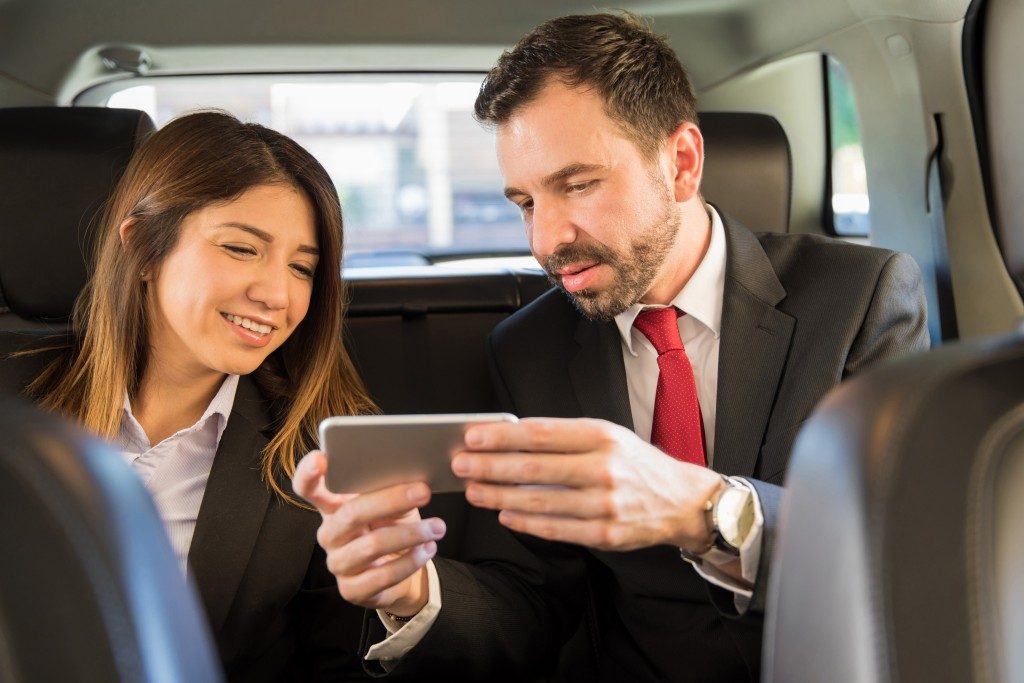As consumers today demand convenience, ride-hailing apps like Uber and Lyft have grown aggressively. Apart from allowing users to book a ride from their mobile phones, these apps also have an impact on the environment. It enables people to share a ride and reduce the number of vehicles on the road, which is the first step in alleviating traffic congestion.
But a study from a group of Rice University and University of Chicago researchers may contest the all-positive image of ride-sharing apps. The results reveal a 2 to 3 percent increase in the number of fatal auto accidents since the boom of these services.
Although the study is still in preliminary stages, it raises the question: what do you do when convenience is no longer convenient?
Take note of these key factors in case you get into an accident while in an Uber or Lyft.
Grab and Lyft Drivers are Not Employees
The first thing you need to know is that the drivers of ride-sharing apps aren’t employees; they’re independent contractors. The argument is that Uber and Lyft provide the drivers with the application that allows them to locate passengers. As a return, these companies get a cut from the driver’s earnings per fare. There is no employer-employee relationship in this setting since the drivers have control of their operations, meaning they use their vehicles, set own schedules and routes, establish their work conditions, and others.
Since there is no employer-employee relationship, Uber and Lyft may not always be liable for their drivers’ negligent or wrongful actions. This means you can’t sue the company for personal injury in case you get into an accident because of the driver. But this doesn’t mean the service providers can’t be held financially responsible.
Insurance Considerations

Another thing you should know is that there are two insurance companies involved: the ride-share company’s and the driver’s. The question of who will compensate for your medical and hospital expenses depends on your case. Ride-share companies generally follow a four-tiered approach when it comes to insurance coverage.
Period 0: When the driver doesn’t have the app on and he or she accidentally hits you, the company immediately assumes that the driver is off-duty. The driver’s personal insurance policy will apply in this case.
Period 1: If the driver causes an accident when he or she has the app on and is cruising around to find a passenger. The driver must first appeal to his or her personal policy. But most insurance providers will reject claims by Uber or Lyft drivers since they are driving for pay or commercial use. If this happens, the ride-share company’s policy will kick in.
Period 2: This is when the driver is already driving the passenger to the drop-off point and gets into an accident. He or she must follow the same protocol as above. If the driver’s insurance doesn’t apply or isn’t enough to cover the expenses, the ride-share company’s $1 million policy will kick in. The coverage also includes any third-party that was harmed in the accident.
Period 3: This is similar to the previous scenario but with additional coverage for the physical damage on the driver’s car. But this is limited to the vehicle’s actual cash value.
What Damages Can You Recover?
An experienced Uber accident lawyer can help you build a strong insurance claim even if you’re not planning to take the case to court. If you’re successful in your claim, you’re entitled to compensation for both your economic and non-economic damages.
The economic or special damages are the monetary losses you sustained as a direct result of the accident, such as repairing or replacing damaged property, medical expenses, and lost wages. The non-economic or general damages include compensation for emotional distress, pain and suffering, and other factors that are difficult to put a dollar value on.
Accidents can happen anytime, and Uber and Lyft vehicles are not exceptions to this. Arm yourself with information early on, so you know what to do if the unthinkable happens. Don’t be afraid to pursue compensation for your damages because this will help you ease the burden of your recovery – financially, emotionally, and physically.

